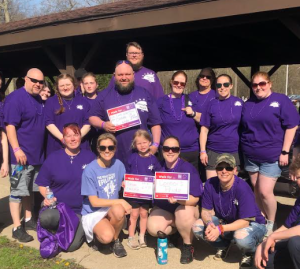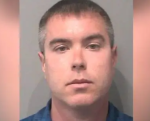
Source: JoJo Gentry
INDIANAPOLIS–More than 70,000 Hoosiers live with epilepsy, but it doesn’t affect all of them the same way.
“I was diagnosed with epilepsy when I was 24 after having two grand mal seizures. To this day, neurologists and other doctors I’ve spoken with don’t know why I have seizures. There are several different kinds of seizures. You don’t have to fall unconscious and shake to have a seizure. There are absence seizures where someone can stare and not necessarily be aware of their surroundings. Oftentimes, people don’t know when they’re having a seizure like that,” said JoJo Gentry, advisory board and chair with the Indiana Epilepsy Foundation.
Epilepsy cannot usually be cured, but medication can control seizures effectively for roughly 7 in 10 patients. Doctors classify seizures as uncontrolled electrical disturbances in the brain which can cause changes in behavior, movements, feelings, and consciousness. Those changes in behavior can differ depending on the person.
“Medication does work for me. I take an anticonvulsant twice a day and have every day for the last five years. I’m still very fortunate that I’m seizure free. Medication doesn’t always work for people with epilepsy so they have turned to alternative therapies,” said Gentry.
If medication isn’t effective, things like sleep, dietary changes, neurostimulation, and visits with a doctor can help.
“I try to get 8 to 10 hours of sleep a night. If I go more than a couple of days without that necessary sleep, I put myself at a high risk for having a seizure. For every seizure I have, I can’t drive for six months,” said Gentry.
There is an event called “Walk to End Epilepsy” at Butler University on Saturday April 29. Some of the topics to be discussed at that event include medicines and therapies that can be helpful, how to live with epilepsy, and seizure first aid training.













